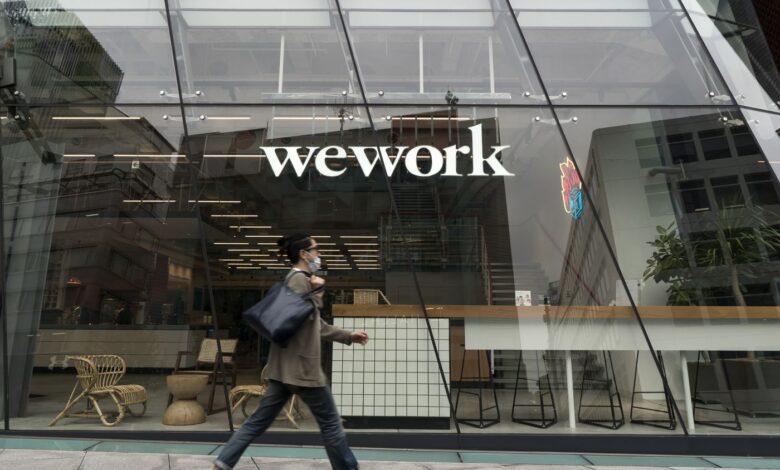WeWork’s stock drops 50%, expected to declare for bankruptcy next week
The New York-based corporation, which was once valued at $47 billion, has been suffering from significant losses and a heavy debt load for a few years now.

WeWork’s shares dropped by almost 50% to a record low on Wednesday in reaction to rumours circulating that the provider of flexible workspaces was getting ready to declare bankruptcy as soon as next week.
The New York-based corporation, which was once valued at $47 billion, has been suffering from significant losses and a heavy debt load for a few years now.
The stock of the company is currently trading at a record low of $1.22, the most recent in a string of record lows, which indicates a drop in value of almost 98.86 percent this year.
With a market capitalization of about $121 million, it has significantly declined from its peak in the past.
The business, which is supported by SoftBank, has faced a number of difficulties that could lead to a possible bankruptcy case. Plans for a first public offering were shelved in 2019 due to concerns regarding its long-term lease acquisition and short-term rental business strategy.
WeWork is still a problematic project for SoftBank, which committed billions to try to save the firm that hasn’t made a profit, even though it eventually went public in 2021 at a valuation that was far lower than anticipated. WeWork may be considering filing a Chapter 11 petition in New Jersey, according to reports, which were first published by the Wall Street Journal on Tuesday.
Additionally, even though it had the money to pay the obligation, the business chose to defer the interest payment on the senior notes due in 2025 that was scheduled to be made on November 1. This choice was made in response to WeWork’s August warning that it might declare bankruptcy.
WeWork announced on Tuesday that it has achieved a temporary payment delay deal with its creditors for a portion of its debt, with an impending expiration of the grace period.
The corporation had $2.9 billion in net long-term debt as of the end of June, and it owed over $13 billion in long-term leases. These monetary commitments arrived at a difficult moment when the commercial real estate industry was suffering from rising borrowing costs.
WeWork announced in August that it had “substantial doubt” about its capacity to continue operating, and during the course of the year, a number of executives, including CEO Sandeep Mathrani, left the firm.
You might also be intersted in – “India criticises rich nations’ climate inaction, calls for equity in Global Stocktake”


